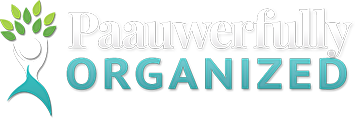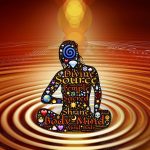You were born with a unique personality, temperament, gifts, talents, and strengths – the things that make you uniquely YOU! As we continue our exploration of the Nine Environments of You — a great tool to help balance your life — the Self environment is an important one to reflect upon. You can read more about this model by visiting a previous blog post, where I’ve provided an overview of all nine environments.
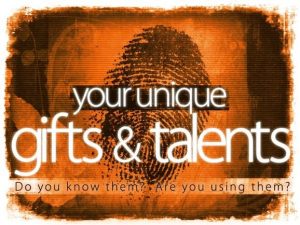 Many people never fully express their personality or utilize the natural gifts and strengths they were given. Realized or not, you possess talents that you were born with. These talents may feel so natural that you don’t even realize how they make you unique and special. Your combined unique talents and capabilities create an experience for others that cannot be exactly duplicated by anyone else because there is only one unique you in this world.
Many people never fully express their personality or utilize the natural gifts and strengths they were given. Realized or not, you possess talents that you were born with. These talents may feel so natural that you don’t even realize how they make you unique and special. Your combined unique talents and capabilities create an experience for others that cannot be exactly duplicated by anyone else because there is only one unique you in this world.
Self-Imposed Prison
Tomorrow – July 4 – we celebrate Independence Day in the United States. In a physical sense, most of us enjoy freedom. In an emotional or psychological sense, however, an estimated 80% of the population puts themselves into a self-imposed prison cell on a regular basis. We forfeit our freedom of choice through our own thought processes.
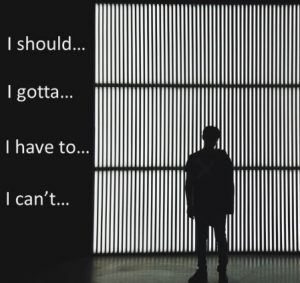 I frequently hear my clients say, I should,” “I gotta…” or ” “I have to…” and when I hear those phrases I often ask, “Do you have to or do you choose to?” There are very few things in life that we have to do. Yet some of us forfeit our choice to the point of seeing our options in life as limited. This often leads to a feeling of hopelessness.
I frequently hear my clients say, I should,” “I gotta…” or ” “I have to…” and when I hear those phrases I often ask, “Do you have to or do you choose to?” There are very few things in life that we have to do. Yet some of us forfeit our choice to the point of seeing our options in life as limited. This often leads to a feeling of hopelessness.
We have been given the ability to examine our conscious thoughts and choose how we respond in any given situation. We learn at a very early age that if we act a certain way, we will achieve a certain result. Often the result we opt for is safety. And safety is necessary to preserve our physical well-being.
However, our desire to be “safe” sometimes paralyzes our ability to exercise our free will. From early childhood, most of us have been programmed to “play it safe,” and this often affects the choices we make as adults. We tell ourselves, “That was SO disappointing before, so I better not take that chance again!”
Are you paralyzed by fear?
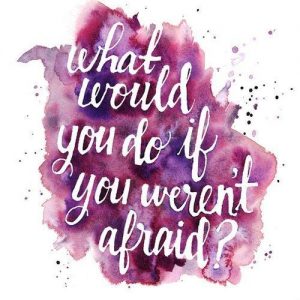 Do you allow your fear of hurt, rejection, or failure to determine how much risk you’re willing to take? What does it cost you when fear wins over taking a reasonable risk?
Do you allow your fear of hurt, rejection, or failure to determine how much risk you’re willing to take? What does it cost you when fear wins over taking a reasonable risk?
Perhaps you’re stuck in a job or career path you hate, or you’re in a relationship that does not serve you. Do you struggle with low self-esteem and self-confidence? If so, you’re probably severely hampering your ability to manifest what you want in your life by convincing yourself that you shouldn’t try, or that you don’t deserve what you really want.
Our choices are strongly influenced by disempowering emotions. By learning to recognize and step out of experiencing these emotions, a whole new world of possibility will be available to you.
I know this from personal experience. For 13 years I chose to stay in a career that I did not find fulfilling. The more time I invested in that career path, the less at choice I felt. At one point I took an exam to receive a special certification in my field. When I passed the exam and was certified, I felt like there was no turning back! I told myself, “I can’t leave this field now…look how much I’ve invested in getting to where I am!” And besides, I had no idea what else I could possibly do. Fear held me back, until one day the pain of not making a change outweighed the fear of the unknown.
Susan Jeffers, author of Feel the Fear and Do it Anyway, teaches us how to stop negative thinking patterns and re-educate our minds to think more positively. In her book, she shows us how to risk a little every day, how to turn every decision into a “no-lose” situation, and much more.
When my clients focus on their values – what’s most important to them at the core — they are more at choice and less at effect. They recognize that they have the freedom to choose based on their own values, versus being influenced by limiting beliefs, circumstances, or the opinions of others.
One of the great joys of being a coach is that I get to journey with my clients as they create the work and play they are most passionate about. When personality, gifts, talents, strengths and passions intersect, there is no limit to the possibilities!
Authentic Promotion
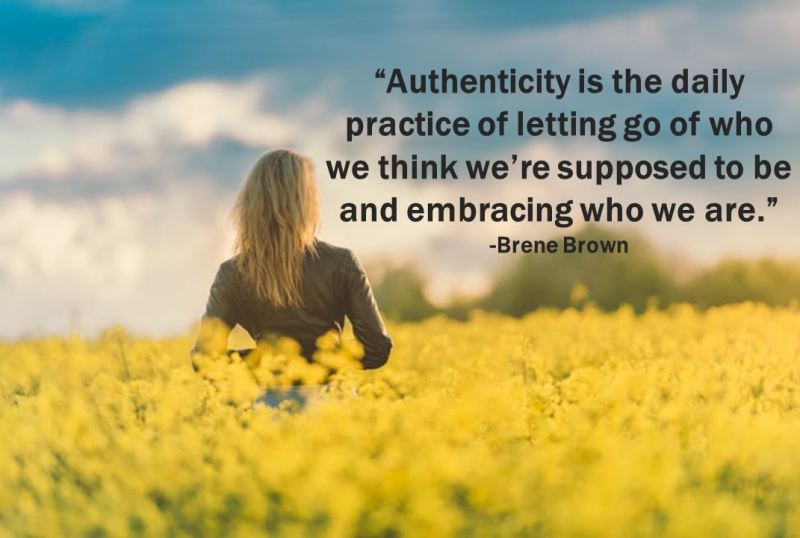 Years ago, I participated in a workshop series called Authentic Promotion that was taught by my friend and colleague, Master Certified Coach Molly Gordon.
Years ago, I participated in a workshop series called Authentic Promotion that was taught by my friend and colleague, Master Certified Coach Molly Gordon.
A few weeks into the workshop series, Molly mentioned something about stewardship. When I hear that word, I always think of church in the fall when a layperson asks the members to pledge support to the church for the coming year. Usually they say something like this: ”All that we have has been given to us. It is our responsibility to give back a portion of what we have been given.” As Molly was talking about stewardship in the context of marketing, I realized that I had always misunderstood what marketing was all about.
As soon as I stopped thinking about “selling” my services and started thinking about being a good steward of the gifts and talents I had been given, it completely shifted the way I felt about marketing. I was simply offering the gifts that I had been given — my ability to coach and teach others — with no attachment to the other person’s decision. Once I made my shift from selling my services to authentically promoting what I had to offer, my coaching business doubled over the next twelve months.
If you are in business or in sales, I encourage you to shift the way you think about sharing what you have to offer. As a good steward of whatever you’ve been given, it’s not just a good idea for you to share your gifts and talents with others — it’s your responsibility to do so. When you withhold sharing the gifts and talents you’ve been given, you deprive others of receiving something they may need. It would be selfish for you to withhold a product or service that might benefit someone else. If the other person chooses not to receive what you’ve offered, you have no attachment to their decision. You’ve responsibly shared it, and you simply move on.
You get more of what you focus on.
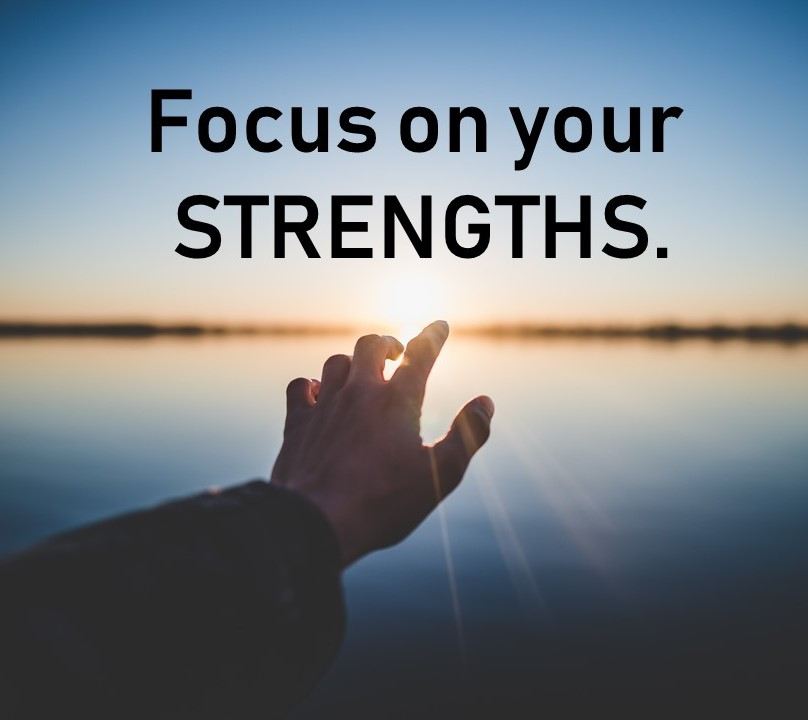 According to Marcus Buckingham and Donald Clifton, authors of Now, Discover Your Strengths, research has found that only 41 percent of Americans believe that the key to success is to focus on strengths rather than weaknesses. In Japan and China, only 24 percent of those surveyed said they’d focus on strengths. The rest of the population believed that the key to success is found by focusing on weaknesses and trying to improve them.
According to Marcus Buckingham and Donald Clifton, authors of Now, Discover Your Strengths, research has found that only 41 percent of Americans believe that the key to success is to focus on strengths rather than weaknesses. In Japan and China, only 24 percent of those surveyed said they’d focus on strengths. The rest of the population believed that the key to success is found by focusing on weaknesses and trying to improve them.
The problem is that we tend to get more of what we focus on. If we focus on our weaknesses, what does that mean?
The clearer you are about your own natural talents and strengths, the more you can focus on employing them in your everyday life. Whatever you set your mind to, you will be most successful and feel most fulfilled when you design your life to utilize your most dominant talents.
I love to teach and write, so teaching and writing are natural ways that I connect with others. A friend of mine has a magnetic personality and loves going to networking events. We both successfully attract clients because we focus on repeating activities that we love and that we are good at doing.
What Are You Tolerating?
Are you fully expressing your authentic self as you were created to? Below are some questions to help you get clear about what you are tolerating in your Self environment.

- Am I aware of my self-talk? Do I avoid victim language (I should, I gotta, I have to)?
- Do I know my strongest skills, talents, and strengths and use them as leverage to maximize my success?
- Do I maintain strong boundaries in my life with people who could violate them?
- Do I take 100 percent responsibility for my own life versus blaming others or justifying when things don’t go as I wanted them to?
- Do I live an authentic life?
- Do I appropriately display emotions?
- Do I have a positive self-image or self-esteem?
- Do I inspire others in the way that I live my life?
- Do I honor my priorities?
- Do I live in integrity by keeping my word to myself and to others?
Once you’ve answered the questions above, you may have greater clarity about what needs some attention in your Self environment. I encourage you to identify some “upgrades” you desire, as well as specific actions you will take, and by when.
Here’s an example of what that looks like:
Upgrades desired in the Self environment:
- Get back into singing regularly.
- Decide if I will do public speaking.
Actions to be taken by when:
- Join choir at church beginning in September.
- Visit a Toastmasters group in my area by August 10.
- By December 1, decide if I will focus on public speaking or offering webinars in the coming year.
Now, it’s your turn to identify the upgrades you desire, the actions you will take, and by when. I encourage you to choose ONE thing you will do to upgrade your Self environment and commit to spending 15 minutes to take immediate action. As you do this with each environment, get ready to experience synchronicity in your life like never before, as things fall into place.
If you’d like a fresh perspective– someone to help you design the balanced life you want by aligning your vision, priorities, and actions—let’s schedule a no-cost, no-pressure Discovery Call today.
Additional Resources:
- Blog: Balance Your Life: The 9 Environments of You (overview)
- Blog: Balance Your Life: Environment #1 – Memetic/Mental
- Blog: Balance Your Life: Environment #2 – Body
- Blog: Manage Your Emotions
- Free Webinar: Managing Priorities
- Guide: Cultivating Happiness: Living Life on Your Terms
- Guide: Find Your Strengths & Choose Your Success
- Guide: Creating New Habits

Life Architect – Creating Blueprints for Purposeful & Productive Lives
Kathy@OrgCoach.net www.OrgCoach.net Follow me on Facebook

